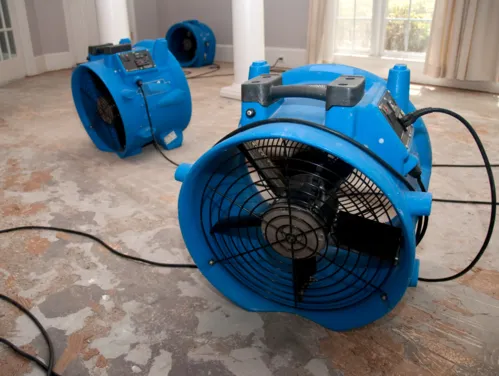On this page...
When flood waters recede, the damage left behind can be devastating and present many dangers. Do not enter a flood damaged home or building until you're given the "All Clear" by authorities. If you enter a flood damaged building, be extremely careful. Water can cause floods to collapse, ceilings to fall, etc. Make sure the electrical system has been turned off. Have the power company or a qualified electrician fix wires. Contact your insurance agent to discuss property damage.
Back to topHow to Document Damage and Start Clean-Up
Rebuilding after a flood can be difficult. Start the recovery process by documenting damage and taking steps to stop the spread of mold. Check out more detailed information from Iowa DNR .
Back to topCleaning and Disinfecting After a Flood
Follow these simple rules from HHS for cleaning and disinfecting items after flooding. If in DOUBT, throw it OUT!
Back to topReopening After a Flood
The Iowa Department of Inspections, Appeals, & Licensing has prepared guidance for food establishments that have experienced flooding to aid in reopening.
Back to topGuidelines for Cleaning Safely After a Disaster
Take steps to protect yourself and your loved ones during your cleanup after a flood or other natural disaster.
- Get the right safety gear (hard hats, goggles, N95 masks or a respirator with a higher protection level, heavy work gloves, waterproof boots with steel toe and insole, earplugs or protective headphones).
- Is sewage involved? Make sure to wear rubber boots, rubber gloves, and goggles if sewage is involved.
- Use teams to move heavy or bulky objects and pace yourself. Stay hydrated and take breaks in hot weather.
- Be careful with floodwater. Floodwater can contain dangerous bacteria from overflowing sewage and agricultural and industrial waste. While skin contact with floodwater doesn't pose a serious health risk by itself, eating or drinking anything contaminated with floodwater can cause diseases.
- Be careful when using a pressure washer. Wear rubber-soled shoes that provide some insulation and follow the safety instructions included in the owner's manual.
- Prevent mold growth. Clean up and dry your home quickly after the storm or flood ends- within 24 to 48 hours if possible. Air out your house by opening doors and windows. Use fans to dry wet areas. Position fans to blow air outdoors or windows.
More detailed information from the CDC - Cleaning Safely After a Disaster.
Back to topFlood Cleanup to Protect Indoor Air and Your Health
Flood water can make the air in your home unhealthy. Mold can grow on wood, drywall, carpet and furniture if they remain wet for more than 24 hours. Breathing in mold can make you sick. Flood water can also contain bacteria, chemicals or other hazards which may affect your health. Check out the 4 important actions you should consider to protect your health and indoor air quality when cleaning up after a flood on the EPA Indoor Air Quality website.
Back to topDisaster Cleanup & Repair For Your Home
Whether you rode out the storm at home, or evacuated to a safer location, taking the first look around your damaged home can be overwhelming. In addition to the other emotions you may be feeling, you may feel daunted by the size of the task and not know where to begin.
Every home’s needs will be different, and some damage can only be repaired by professionals. But if you and your loved ones will be tackling any of the work, these tips for cleaning and repairing your home after a disaster will help you get started safely and effectively. Check out these Red Cross Resources.
Back to topSave Your Family Treasures After a Disaster
With a little patience and prompt action, saving cherished photographs, letters, paintings and other irreplaceable objects is possible. FEMA and the Smithsonian Institution offer this detailed guidance in multiple languages to help you recover your family treasures from a disaster.
Back to topHow to be Prepared for and Recover from a Flood
Flooding is the most common natural disaster in the United States. Know what to do before, during, and after a flood by checking out these resources from FEMA Flood Preparedness.

